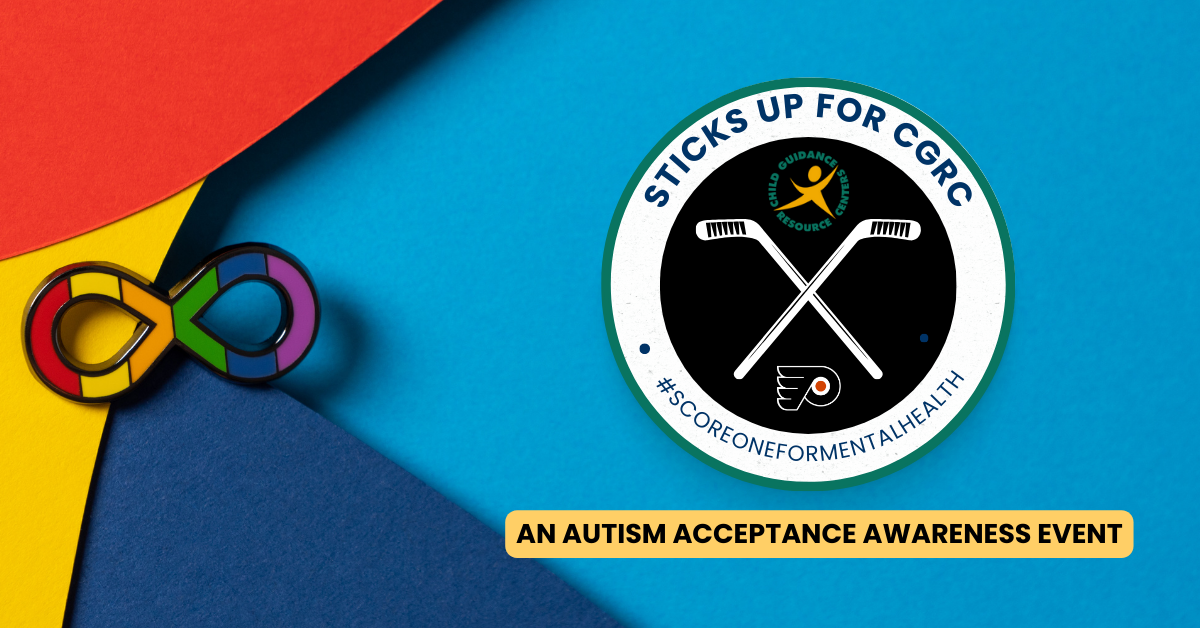April is Autism Awareness Month, but at Child Guidance Resource Centers (CGRC), we believe it’s time to shift from awareness to acceptance. While awareness highlights the existence of autism, acceptance fosters understanding, inclusion, and meaningful support for individuals on the spectrum. The shift is related to inclusivity and acceptance as opposed to the idea of Autistic people being different and needing support to “fit in”.
Why Autism Acceptance Matters
Autism affects 1 in 36 children in the U.S., yet many autistic individuals still face barriers to education, employment, and community inclusion. In Pennsylvania, there are over 55,000 adults and children with Autism. True acceptance means ensuring that autistic individuals are valued, supported, and given opportunities to thrive—just like anyone else.
Beyond Awareness: How to Foster Acceptance
✅ Listen to Autistic Voices – The best way to understand autism is by hearing directly from autistic individuals about their experiences.
✅ Promote Inclusion in Schools & Workplaces – Schools and employers must create environments where neurodiverse individuals feel welcome, accommodated, and respected.
✅ Support Autism-Friendly Events – Events that consider sensory sensitivities and unique needs help create truly inclusive spaces.
✅ Advocate for Policies That Support Neurodiversity – Acceptance means pushing for services, accommodations, and equal opportunities for autistic individuals.
How CGRC Supports Autism Acceptance, Every Child is a Snowflake
Autistic children benefit from targeted support in key skill areas to help them navigate social, academic, and daily life settings successfully. Skills such as group participation, turn-taking, and following rules are essential for classroom and peer interactions, while coping strategies help manage sensory sensitivities and emotional regulation challenges, reducing stress and meltdowns.
Awareness of personal space and boundaries supports positive social interactions, while fine and gross motor skill development enhances independence in self-care, academics, and recreational activities.
Functional communication and language development—whether through verbal speech, augmentative communication, or visual supports—are crucial for self-expression and reducing frustration. By addressing these areas, behavior analytic work helps children build confidence, independence, and meaningful connections while also easing family stress and improving overall dynamics. Schools and communities also benefit by fostering a more inclusive and supportive environment, allowing autistic children to thrive alongside their peers.
We Love Our Snowflakes
We see our children as unique as snowflakes—each one with their own strengths, talents, and interests. Our goal is to celebrate their individuality by nurturing their strengths and fostering their personal passions, helping them grow in a way that is both meaningful and empowering.
Join Us in Celebrating Autism Acceptance
This Autism Awareness Month, let’s move beyond awareness and work toward a world where autistic individuals are fully accepted and included. One way to take action? Join us for Sticks Up for CGRC, our fundraiser supporting autism and mental health services. Your participation helps us create a more inclusive, supportive future for children and families.
💙 Support Autism Acceptance. Support CGRC. 💙

